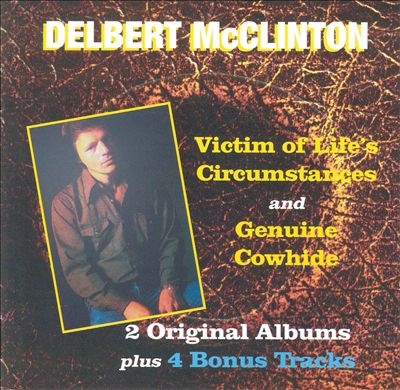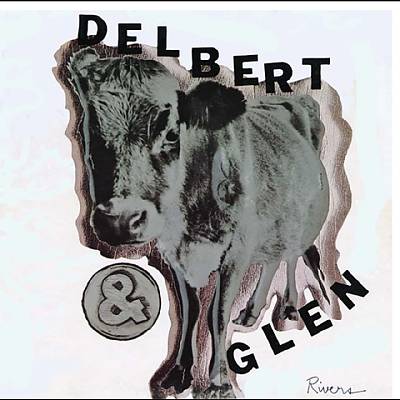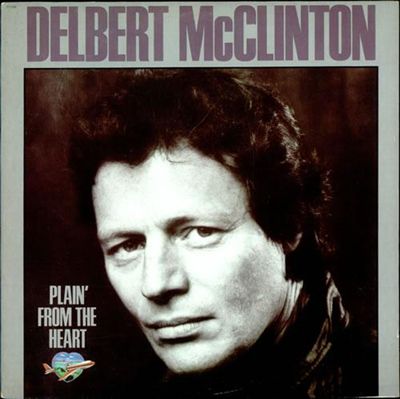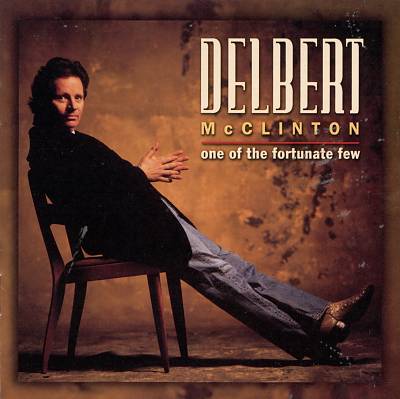The Delbert McClinton Biography, Songs, & Albums page is a comprehensive resource for information about the life and career of American singer-songwriter.
Delbert McClinton is a singer, songwriter and guitarist. He has been playing music since the age of 13. His songs have been recorded by artists such as Bob Dylan, Willie Nelson, Eric Clapton, and Bonnie Raitt.
 Delbert McClinton is a legend among Texas roots music fans, not just for his incredible longevity, but also for his ability to blend country, blues, soul, and rock & roll as if there were no differences (in the best time-honored Texas tradition). McClinton’s career started in the late 1950s as a powerful harmonica player (he performed the characteristic harp riff on Bruce Channel’s 1962 number one song “Hey! Baby”), but it took him almost two decades to develop into a bona fide solo performer with 1975’s Victim of Life’s Circumstances. After a few years of hard effort, McClinton finally had a Top Ten success with the sleek, funky “Giving It Up for Your Love,” which reached number eight in 1981. While it was his lone mainstream success, it helped pave the way for a long career as an American roots musician. McClinton’s career was boosted in 1992 when he won a Grammy Award for his duet with Bonnie Raitt, “Good Man, Good Woman.” As he settled into a blues style with many albums for New West, he received more collaborations and accolades (two of which were Grammy winners). In the twenty-first century, McClinton continues to utilize blues as a foundation for exploring other roots music, producing new songs and touring regularly.
Delbert McClinton is a legend among Texas roots music fans, not just for his incredible longevity, but also for his ability to blend country, blues, soul, and rock & roll as if there were no differences (in the best time-honored Texas tradition). McClinton’s career started in the late 1950s as a powerful harmonica player (he performed the characteristic harp riff on Bruce Channel’s 1962 number one song “Hey! Baby”), but it took him almost two decades to develop into a bona fide solo performer with 1975’s Victim of Life’s Circumstances. After a few years of hard effort, McClinton finally had a Top Ten success with the sleek, funky “Giving It Up for Your Love,” which reached number eight in 1981. While it was his lone mainstream success, it helped pave the way for a long career as an American roots musician. McClinton’s career was boosted in 1992 when he won a Grammy Award for his duet with Bonnie Raitt, “Good Man, Good Woman.” As he settled into a blues style with many albums for New West, he received more collaborations and accolades (two of which were Grammy winners). In the twenty-first century, McClinton continues to utilize blues as a foundation for exploring other roots music, producing new songs and touring regularly.
Delbert McClinton was born on November 4, 1940, in Lubbock, Texas, and grew up in Fort Worth. McClinton became an excellent harmonica player after discovering the blues in his teenage years, and he found plenty of employment in the local club scene, where artists frequently earned their livelihood by performing totally different kinds of music on various nights of the week. McClinton’s most well-known early job was with the Straitjackets, a blues/R&B club’s house band, where he got to play harp alongside blues luminaries such as Howlin’ Wolf, Jimmy Reed, Sonny Boy Williamson II, and Bobby “Blue” Bland. McClinton became the first white artist to have a song aired on the local blues station KNOK when he covered Williamson’s “Wake Up Baby” in 1960. McClinton’s harmonica was featured heavily on Bruce Channel’s 1962 number one hit “Hey! Baby,” and when he was invited along for Channel’s tour of England, he ended up teaching harp lessons to a young John Lennon. When he returned to the United States, McClinton formed the Rondells (also known as the Ron-Dels), who had a small hit with “If You Really Want Me To, I’ll Go” in 1965. Despite recording on a number of labels, the Rondells were unable to achieve broader popularity, and McClinton spent most of the 1960s touring the Texas club and roadhouse circuit, where his reputation grew gradually.
 In 1972, McClinton relocated to Los Angeles, where he formed Delbert & Glen with Fort Worth singer/songwriter Glen Clark. Delbert & Glen were signed to the tiny Atlantic subsidiary Clean Records and released two albums in a mainly country-rock style, Delbert & Glen in 1972 and Subject to Change in 1973. Both albums failed to chart, and McClinton moved to Texas in 1974, where he was able to get a solo contract with ABC based on his growing songwriting ability. Although he was marketed as part of the emerging progressive country movement, McClinton’s music was too indebted to blues and R&B to neatly fit that label. His first solo album, Victim of Life’s Circumstances, was released in 1975; although he was marketed as part of the emerging progressive country movement, McClinton’s music was too indebted to blues and R&B to neatly fit that tag.
In 1972, McClinton relocated to Los Angeles, where he formed Delbert & Glen with Fort Worth singer/songwriter Glen Clark. Delbert & Glen were signed to the tiny Atlantic subsidiary Clean Records and released two albums in a mainly country-rock style, Delbert & Glen in 1972 and Subject to Change in 1973. Both albums failed to chart, and McClinton moved to Texas in 1974, where he was able to get a solo contract with ABC based on his growing songwriting ability. Although he was marketed as part of the emerging progressive country movement, McClinton’s music was too indebted to blues and R&B to neatly fit that label. His first solo album, Victim of Life’s Circumstances, was released in 1975; although he was marketed as part of the emerging progressive country movement, McClinton’s music was too indebted to blues and R&B to neatly fit that tag.
Genuine Cowhide (1976) and Love Rustler (1977) had generally good reviews but little commercial acclaim, and other singers began to mine McClinton’s repertoire for inspiration; in 1978, Emmylou Harris brought his song “Two More Bottles of Wine” to the top of the country charts. After switching to Capricorn, he released two albums, Second Wind in 1978 and Keeper of the Flame in 1979; the former included his original version of “B Movie Boxcar Blues,” which became a staple of the Blues Brothers’ repertoire. When Capricorn went out of business, he signed with Muscle Shoals Sound, and his first album, The Jealous Kind, released in 1980, delivered him his first Top 40 song, “Givin’ It Up for Your Love,” which charted on both the mainstream and country charts.
 Muscle Shoals, however, is not one of them. McClinton’s follow-up, 1981’s Plain from the Heart, was short-lived, and he went on a lengthy sabbatical from recording, focusing primarily on live performances. His second notable appearance was on guitarist Roy Buchanan’s 1986 album Dancing on the Edge, when he was praised for his vocal performance; this guest appearance helped him earn a contract with Alligator. McClinton’s comeback album, Live from Austin, was released in 1989, and it garnered him his first Grammy nomination (for Best Contemporary Blues Album). He signed with Curb in 1990, making his debut with I’m with You, and relocated to Nashville, where he quickly established himself as a sought-after composer in the modern country genre (frequently in collaboration with new partner Gary Nicholson).
Muscle Shoals, however, is not one of them. McClinton’s follow-up, 1981’s Plain from the Heart, was short-lived, and he went on a lengthy sabbatical from recording, focusing primarily on live performances. His second notable appearance was on guitarist Roy Buchanan’s 1986 album Dancing on the Edge, when he was praised for his vocal performance; this guest appearance helped him earn a contract with Alligator. McClinton’s comeback album, Live from Austin, was released in 1989, and it garnered him his first Grammy nomination (for Best Contemporary Blues Album). He signed with Curb in 1990, making his debut with I’m with You, and relocated to Nashville, where he quickly established himself as a sought-after composer in the modern country genre (frequently in collaboration with new partner Gary Nicholson).
Over the following several years, McClinton worked with a number of celebrities, including Wynonna, Vince Gill, Lee Roy Parnell, and Martina McBride. But it was a duet with Bonnie Raitt on 1991’s Luck of the Draw, the follow-up to her much-lauded comeback Nick of Time, that gave him his greatest break. McClinton won his first Grammy for Best Rock Vocal, Duo or Group for the song “Good Man, Good Woman,” which boosted his fame tenfold. Never Been Rocked Enough, released in 1992, included not only his duet with Raitt, but also guest performances from Tom Petty and Melissa Etheridge, as well as “Every Time I Roll the Dice,” his greatest hit song since 1980. Later that year, he topped the country charts with “Tell Me About It,” a duet with Tanya Tucker. The song was subsequently included on McClinton’s second album, Delbert McClinton, released in 1993.
 Despite having achieved his biggest commercial success, McClinton’s relationship with Curb was deteriorating. His following two albums drew relatively little notice, and he eventually broke free from his contract to join with Rising Tide, a tiny Universal-affiliated label. One of the Fortunate Few, which was released in 1997 and included Vince Gill, Patty Loveless, Lyle Lovett, Pam Tillis, B.B. King, John Prine, and Mavis Staples, was intended to return McClinton to his early-’90s status. However, it was still unmistakably McClinton’s performance, and it got generally positive reviews; it also sold more than 250,000 copies before Rising Tide folded. Nothing Personal, McClinton’s next album, was released in 2001 on the Austin, Texas-based New West label and received critical praise.
Despite having achieved his biggest commercial success, McClinton’s relationship with Curb was deteriorating. His following two albums drew relatively little notice, and he eventually broke free from his contract to join with Rising Tide, a tiny Universal-affiliated label. One of the Fortunate Few, which was released in 1997 and included Vince Gill, Patty Loveless, Lyle Lovett, Pam Tillis, B.B. King, John Prine, and Mavis Staples, was intended to return McClinton to his early-’90s status. However, it was still unmistakably McClinton’s performance, and it got generally positive reviews; it also sold more than 250,000 copies before Rising Tide folded. Nothing Personal, McClinton’s next album, was released in 2001 on the Austin, Texas-based New West label and received critical praise.
It became one of his most successful songs, receiving widespread playing on Americana radio and becoming one of the year’s greatest blues chart successes; it also earned him another Grammy for Best Contemporary Blues Album. New West Records released the excellent Cost of Living in 2005. In 2009, Acquired Taste was released. After a 40-year hiatus, McClinton reunited with Clark in 2013 for a new album, Blind, Crippled, and Crazy. McClinton shifted gears artistically in early 2017. With the help of his new band, the Self-Made Men, he recorded a selection of jazz-inflected songs influenced by Johnny Mercer and Nat King Cole. In January, Hot Shot released Prick of the Litter, which reached number two on Billboard’s Blues Albums list. For his following album, Tall, Dark, And Handsome, McClinton kept the Self-Made Men on board.
Delbert McClinton is an American singer-songwriter and musician. He was born in 1938 and has been active since the 1960s. His songs include Mustang Sally, One More Last Chance, and Ain’t No Sunshine. Reference: delbert mcclinton retiring.







